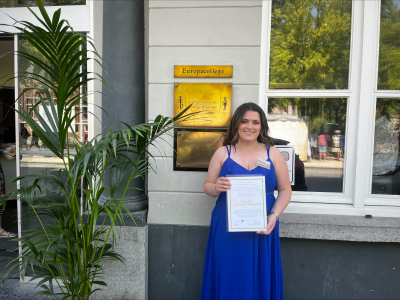The recent revelations by the Organised Crime and Corruption Research Project (OCCRP) on the sale of a Cypriot golden passport to Jho Low, a corrupt Malaysian businessman accused of embezzling billions from the Malaysian sovereign wealth fund 1MDB, demonstrate the urgent need to regulate the golden visa industry.
The investigation revealed that Jho Low received help from the major golden visa industry player Henley & Partners to obtain his Cypriot citizenship using a local company called FidesCorp as a channel for the transaction. Despite repeated denials of any connection with Jho Low, documents found by OCCRP show that Henley & Partners pocketed a total of € 710,000 for services he was directly or indirectly provided with. The London-based firm is believed to have received € 60,000 from FidesCorp for services related to Low’s passport application and a hefty commission of € 650,000 for helping arrange a real estate deal for Low. The latter was directly paid to Henley Estates, a Maltese company set up in 2010 to assist Henley & Partners on real estate deals for citizenship by investment services.
The deal was shrouded in secrecy and conducted with the help of multiple shell companies and nominees to hide the connection to Jho Low. The leaked documents confirm that Henley & Partners worked with Low until at least late November 2016, by which time his close ties to the 1MDB fraud scandal were widely known.
Despite identifying their client as a high-risk person with political exposure, Henley & Partners decided to go ahead with the transaction. This debunks the common myth that the rogue players in the golden visa industry are only a minority of small local businesses that engage in sketchy practices and tarnish the reputation of the wider sector. Here we see one of the biggest companies in the business, which presents itself as the “global leader in residence and citizenship planning” not leading by example and failing to apply the most basic anti-money laundering rules as any intermediary involved in a real estate deal should.
This story also exposes a major loophole in current EU anti-money laundering legislation. As real estate brokers, Henley & Partners and FidesCorp are subject to anti-money laundering obligations but as service providers for residence and citizenship applicants, they are not required, as per EU rules, to conduct any due diligence on their clients. Clearly if the industry is incapable of self-regulation, it must be subject to rules and oversight by public authorities.
We therefore call on the EU to address this loophole as part of the upcoming anti-money laundering legislative package by adding the golden visa industry to the list of sectors subject to anti-money laundering obligations. The Financial Action Taskforce (FATF), the global standard setter for anti-money laundering has already recognised that professionals “acting as intermediaries in the trade of citizenship and residency or acting as advisors in residence and citizenship planning” should be among the list of services that pose risks and vulnerabilities for money laundering & terrorism financing.1
In addition, Cypriot law enforcement authorities must investigate Jho Low’s passport case and real estate deal, as well as the role of intermediaries including Henley & Partners and FidesCorp. They should take steps to revoke Low’s passport and to confiscate his property if found to have been purchased with the proceeds of corruption. The case should also be investigated by the EU as part of the infringement procedure undertaken against Cyprus for breaches in EU law as a result of mismanagement of its golden passport scheme.
[1] https://www.fatf-gafi.org/media/fatf/documents/reports/Risk-Based-Approach-Legal-Professionals.pdf




